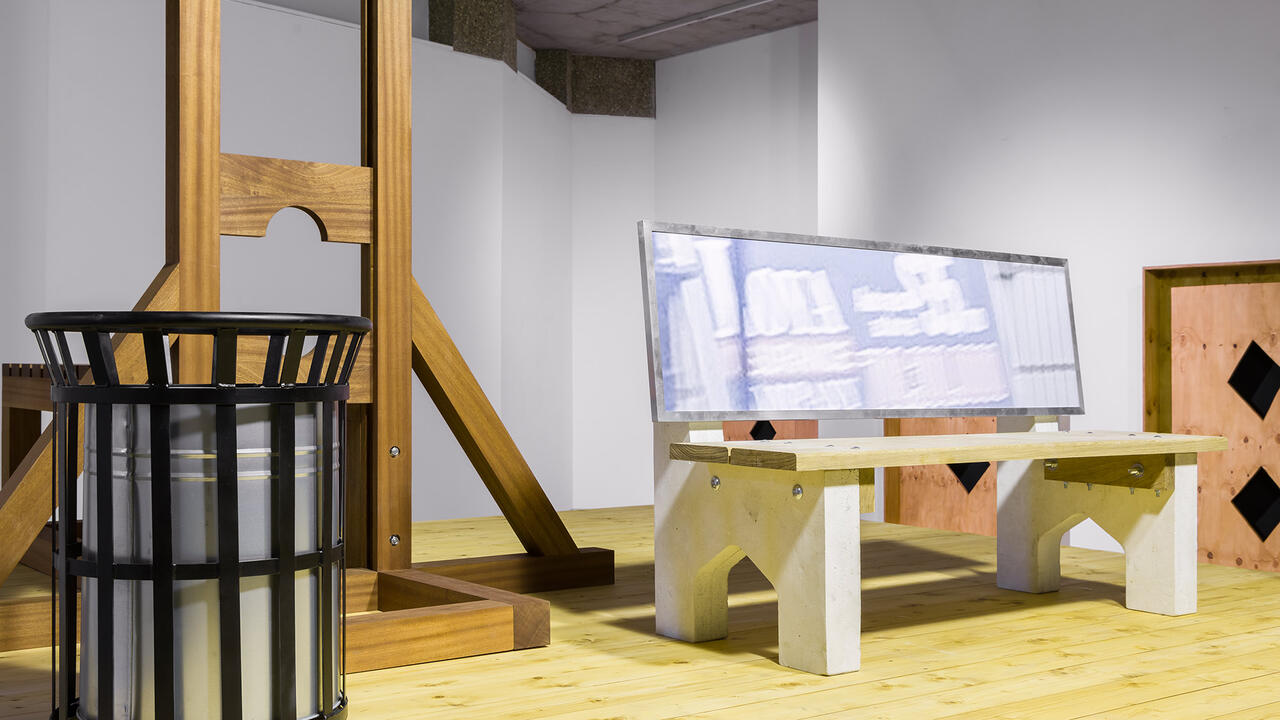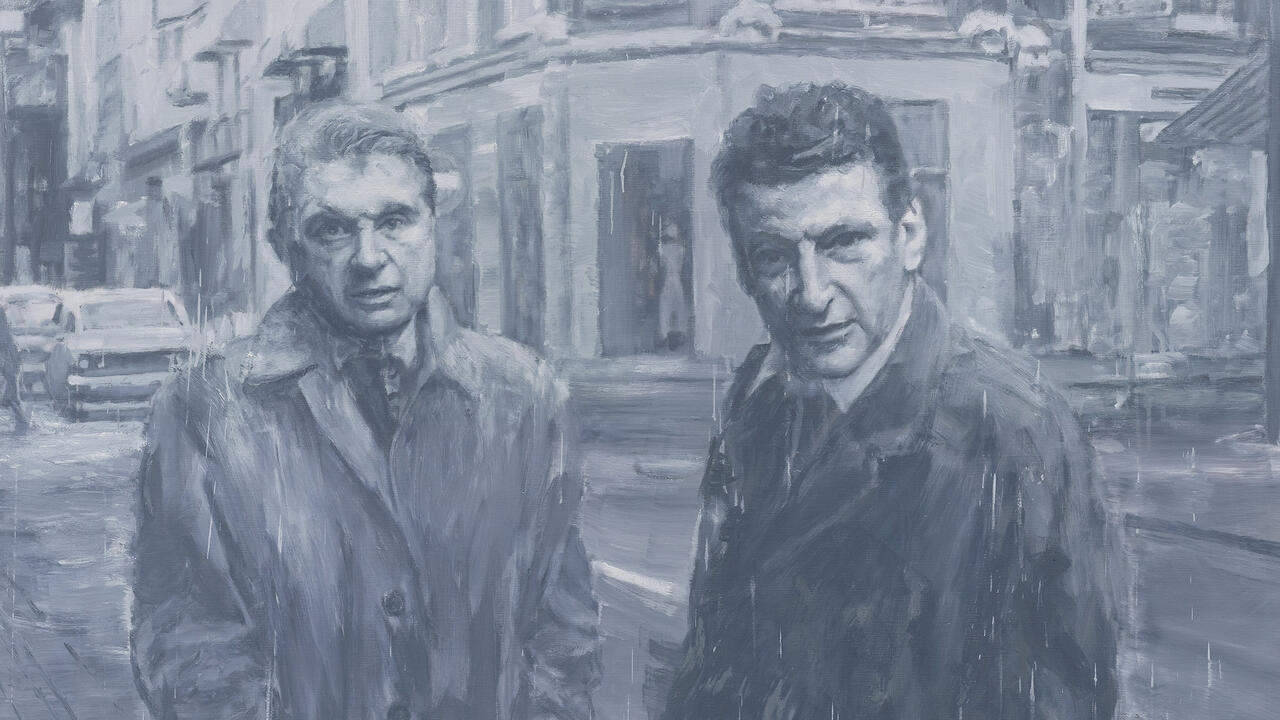Michael Bracewell Looks Back on a Lost London
Dan Fox reviews the writer’s memoir of a twilight capital of art, fashion and music
Dan Fox reviews the writer’s memoir of a twilight capital of art, fashion and music

Souvenir, Michael Bracewell’s evocative memoir of a once-and-future London, opens in November 1982. We are at Richard Branson’s Virgin Megastore on Oxford Street. Outside, ‘a fine sleet’. Inside, the future. It looks like a factory crossed with a nightclub. Here, shoppers can buy records, Sony Walkmans, and ‘a new craze: cappuccino’.
That November, Derek Jarman is living a stone’s throw south of the Megastore, on Charing Cross Road. Book shops rabbit-warren the street. Opposite Jarman’s flat is Saint Martin’s School of Art. Behind Saint Martin’s, Soho: seedy, but genius loci of what Bracewell calls ‘a received idea of London’s West End during the mid-20th century’. Modern jazz, 1950s bohemia, queer theatreland. Treasure for the quotation-crazy pop zeitgeist that year. Meanwhile, a new architecture of global finance rising in London’s east warns of things-to-come: buildings with ‘glass that looks blastproof […] precincts as though in the service-area depths of some vast spacecraft’. It’s prep for when ‘worker citizens will travel wired, dressed in militarized sportswear with their coffee and technology’, for when the Megastore’s owner will sell space tourism in a New Gilded Age.

Souvenir recalls London’s changing mood between the Winter of Discontent in 1978–79 and the boom years of the mid-1980s under Prime Minister Margaret Thatcher. Art, literature and music are the book’s lodestars. Concise vignettes, allusive and romantic, shuttle back-and-forth between places and years: the Institute of Contemporary Arts cafe, 1982; a Sicilian Avenue tailor, 1983; the Lloyd’s Building, 1986. Souvenir is framed as a memoir but effaces autobiography. No ‘I’, just ‘he’, ‘she’ or ‘they’. Sometimes ‘we’, but shrouded in fog, persons unnamed. The famous are occasionally identified, in snapshots: Kathy Acker’s knuckleduster rings, William S. Burroughs’s sycophants. Bracewell is punctilious about naming streets, shops, cafes, clubs. Reminiscent of Patrick Modiano’s Paris novels, these specifics contrast with vanishing figures, half-remembered. Souvenir is alive to the senses and seasons dressing London. ‘White sky that smell[s] of mud and cold’ observed from a ‘tobacco-musty’ train to Tulse Hill. Weather is a concentrate to be mixed with art: ‘music made of winter’ by PiL; Prefab Sprout ‘seeking the spring’ with song.
Bracewell has a poet’s gift for locating essence in detail. ‘Consommé made of dissolving dry fish’ at a miserable dinner in Fitzrovia, clever guests smug in chit-chat about transgression. ‘Placid, long-haired couples baking bread, restoring Eden to Paddington,’ an image straight out of a Mike Leigh film – or our lockdowns. Souvenir reaches back across decades of exsanguinating Conservatism, New Labour, austerity and gentrification to find intimations of today’s malaise. Those long-haired couples, Bracewell observes, quit London in the 1970s to seek Arcadia in the countryside. In 1983, creative people leave for Brussels and Berlin. Over espresso Martinis in the buzzy Soho Brasserie, 1985, a new attitude emerges: ‘All the world an office, all the world a shop […] the shop as gallery, studio as business, business as studio […] branded product as art multiple and design as individualism.’ In 1971, buying a rural retreat was not widely understood to be pricing local people out. ‘All the world an office’, in 1986, signalled flexibility, innovation, an international outlook. It didn’t mean being always at work, constantly available, conflating exhaustion with professional commitment. The avant-garde, flattering itself, rarely imagines that its dreams of liberation might become nightmares of immiseration. ‘I cannot stand this reign of shit,’ remarks a friend to Bracewell, and it’s left ambiguous whether this was said yesterday or four decades ago. Better to stand back, be like the unnamed music duo Souvenir describes who, convinced that releasing a record would compromise their art, instead build a balsa-wood glider.

Those preferring omniscience to poetry will note what is missing from this short, intense elegy. But all good London books perform close-reads on select subjects, and a souvenir – French for ‘memory’ – is, by nature, redactive and personal. Conventional accounts of new wave New York and London portray pretty, white youth – described predictably, invariably, as ‘legendary’ – exalting poverty amid urban decay. Souvenir values nature over desuetude. Bracewell’s insistent pastoralism is striking in a year of flash floods inundating London. Literary stars, important exhibitions, espresso Martinis: these, Souvenir tells us, will pass. The hyacinths in Holborn are what matter.
This article first appeared in frieze issue 223 with the headline ‘The Way We Lived Then’
Main image: The Lloyd's Building, London. Courtesy: Getty Images and Ki Price

























